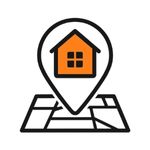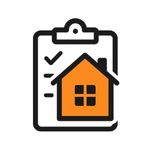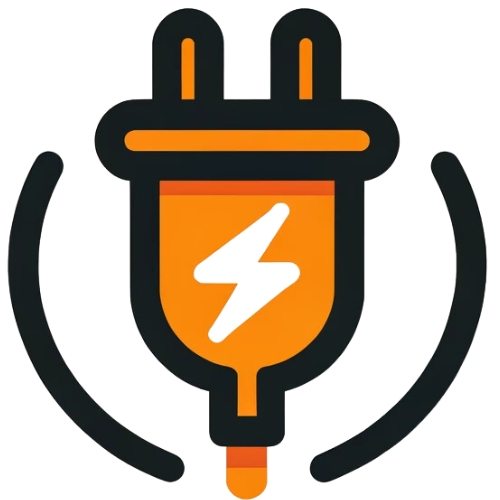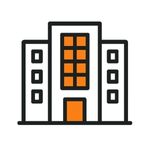
Buying a home in South Africa is one of the biggest financial steps that most people will take. Many focus on saving for a deposit and arranging a home loan, but there are many extra costs that buyers often do not expect. These extra expenses can catch people off guard, sometimes adding thousands of rand to the overall cost of the property. If you are planning to buy a house, you need to know about these extra charges.
Key Takeaways
- Hidden Costs Can Add Thousands: Beyond the deposit and loan repayments, buyers should budget for transfer duties, legal fees, Deeds Office charges, and setup costs for utilities and insurance. These hidden costs can significantly increase the total cost of purchasing a home.
- Ongoing Expenses Are Often Overlooked: Monthly charges such as bond admin fees, rates, levies, insurance, and maintenance costs continue long after the purchase. Not accounting for these can affect your monthly budget and financial stability.
- Proper Planning Reduces Risk: Understanding your financial limits, comparing home loan options, and reviewing documents and property condition before buying can prevent costly mistakes and future disputes. Being well-prepared makes the process more manageable.
About Arcadia Finance
Effortlessly secure the loan you need with Arcadia Finance. With zero application fees and a choice of 19 trusted, NCR-compliant lenders in South Africa, you’ll enjoy a smooth, transparent process designed to meet your financial goals.
How Much Does it Cost to Buy a House?
When searching for a home, most people focus on the advertised selling price. This figure is usually used to work out the monthly home loan repayment. Many buyers also save for a deposit, which helps lower the total bond amount needed.
However, the deposit and bond repayments are not the only expenses. There are several other charges involved in buying a home. These are often referred to as hidden costs because they don’t form part of the sale price or monthly instalments.
What People Mean By ‘Hidden Costs’
These extra costs aren’t secret, but many first-time buyers are unaware of them. They’re well known in the property sector but are often left out of early conversations. Since they aren’t part of the advertised price, buyers only find out about them later in the process.
New buyers often don’t realise how much extra they’ll need until they receive an invoice or quote. These amounts can come as a surprise and may lead to stress if they haven’t been budgeted for in advance.
Buying A House Involves More Than Just The Purchase
Owning a home is a major life step and one of the biggest financial commitments most people make. While it can be a valuable asset, it comes with responsibilities and costs that continue well beyond the date of purchase.
Knowing all the expenses from the start helps you budget properly. It lowers the risk of running out of money during transfer or in the early months of ownership. This guide gives a full breakdown of the key extra costs involved, so you can be prepared.
Planning ahead is key, but knowing the full journey makes all the difference. Check out How to Become a Homeowner in South Africa for a step-by-step roadmap that guides you from saving your deposit right through to moving into your very own home.

Hidden Costs To Expect When Buying A House
Bond And Transfer Fees
- Bond Initiation Fee: This is a once-off charge that banks apply for setting up your home loan. It may either be paid in advance or included in the total bond amount. Paying it upfront may help reduce the interest charged over the loan period.
- Legal Fees: Property purchases usually involve three attorneys, each charging separate fees. The Bond Attorney registers the mortgage bond for the bank. Fees depend on the bond amount and property type. The Cancellation Attorney closes an existing bond when selling a current property. The Transfer Attorney is appointed by the seller to transfer ownership to the buyer. Fees are based on the purchase price.
Government Charges
- Deeds Office Fee: This is a mandatory fee payable to the Deeds Office for registering the title deed and bond. The exact amount depends on the value of the property and the size of the bond.
- Transfer Duty: This is one of the most expensive once-off payments buyers must prepare for. It is a tax collected by the South African Revenue Service (SARS) and must be paid within six months after the transfer process begins. In the case of newly built properties, you might be charged VAT instead of transfer duty, especially if the developer is VAT-registered.

Other Ongoing Costs
Monthly Bond Administration Fee
Most banks charge a small monthly fee for handling the administration and maintenance of your home loan. Though it is not a large amount, it adds up over time and should be included in your monthly budget.
Insurance
Homeowners are usually required to have insurance on the property. This protects against damage caused by events such as fire, storms or flooding. Depending on your bond terms, you may also need to take out life insurance that ensures your loan is paid off in the event of your death. Comparing different providers can help secure a more affordable policy.
Moving Costs
Relocating comes with its own set of expenses. You may need to hire a moving van or a professional removal company. Costs vary based on the volume of belongings and the distance travelled. Moving during the middle of the month often results in lower rates compared to end-of-month moves.
Utility Connections And Rates
- Connecting Utilities: There are separate charges for activating basic utilities such as water and electricity. You may also need to account for the setup cost of a landline phone or fibre internet service. Installation fees, equipment charges, and deposits may apply for each service.
- Rates And Levies: Property owners must pay monthly municipal rates for services such as sewage, refuse removal, and infrastructure maintenance, based on the property’s municipal value. Some municipalities may also require a deposit for water or electricity accounts. If you buy a sectional title property, you’ll also pay a fixed levy to the body corporate for shared area maintenance, security, and repairs, with the amount varying by unit size and services.
Security And Maintenance
- Security Systems: Depending on where your new home is located, you may choose to improve security by installing a monitored alarm system or hiring a private security service that offers armed response. These monthly service fees, as well as initial equipment costs, can significantly increase your household expenses.
- Ongoing Maintenance: Owning a home comes with regular repair and upkeep costs. These could include anything from plumbing issues, repainting, gutter cleaning, to fixing a broken geyser. It’s sensible to set aside money every year for general maintenance, as even newer properties require upkeep over time.
Tips For Buying A House In South Africa
Buying a property is a major financial decision and involves quite a bit of administrative work. It requires careful thought and planning, especially for first-time buyers. This guide provides a practical list of steps and considerations to help you make informed decisions before agreeing to buy a home.

Review Your Financial Situation
Before starting your property search, make sure to speak to your bank to confirm whether you qualify for a home loan. This will give you a clear idea of how much you may be allowed to borrow. Knowing your loan eligibility helps you stay within a realistic budget and avoid problems when it comes to bond repayments, rates, taxes, and monthly levies. Always stick to what you can afford based on your income and other financial obligations.

Compare Home Loan Offers
You do not need to accept the first home loan offer that is made available to you. You can compare different lending options through Arcadia Finance to find the one that offers better interest rates or more flexible repayment terms. Mortgage originators can assist by sending your application to multiple banks at once, making it easier to secure a good deal. After submitting the documents, the originator will do the follow-ups with lenders on your behalf.

Choose The Right Area Before Viewing Homes
Before visiting any homes, take time to consider the area where you want to live. Think about what is nearby and how the location fits in with your daily routine. For example, if you have school-going children, you might want to live near a reliable school. If you work at an office, look into the distance and travel time during peak hours. Accessibility to public transport, shopping centres, and medical services should also be factored in.

Carefully Check The Property Condition
Once you have narrowed down your list of possible properties, carry out a detailed inspection. One of the first things to look at is the condition of the house’s structure. Pay close attention to any visible cracks in the walls, unusual floor levels, or doors that do not close properly, as these could indicate foundation issues. You have the right to request a structural survey if you are unsure about any potential risks. Structural damage can lead to high repair costs in future, so it should never be overlooked.
Also keep an eye out for newly painted areas, especially if they appear to have been done only in certain spots. While fresh paint can make a house look appealing, it can also be used to hide water damage, damp, or mould, which will need further attention.

Inspect The Electrical Wiring
One area that buyers often ignore is the condition of the electrical system. This is particularly relevant in older houses. Ask if the wiring has been updated and whether it meets current safety standards. Some homeowners may have attempted their own electrical repairs, which can leave exposed wires or unsafe setups. Any unsafe electrical work must be corrected by a qualified professional to avoid fire hazards or injury.

Buying In A Sectional Title Or Complex?
If you are thinking about buying an apartment or unit in a shared complex, it is a good idea to contact the body corporate. Request a copy of the latest financial statement to understand how the body corporate manages funds and what monthly contributions cover. Also, ask if any special levies are planned or have been charged recently. If structural changes are needed and not budgeted for by the body corporate, the cost may be passed on to you as the unit owner.

Request All The Right Documentation
Once you have inspected the property and you are seriously interested, ask the seller or estate agent to provide all the necessary documents. These may include:
- A copy of the title deed and property diagram
- Any active lease agreements, if the home is being rented out
- Approved building plans
- Information about zoning and municipal requirements
Having these documents available ensures you understand the full legal status of the home and any limitations on future use or renovations.

Prepare To Discuss The Offer And Terms
When you are ready to proceed with the purchase, you will need to meet with the seller and estate agent to negotiate and confirm the sale conditions. Based on what you found during your inspection, you may be in a position to request a lower price or certain repairs before finalising the agreement. At this point, you will need to complete two legal documents: the offer to purchase and the sale agreement. Both documents must be signed by you and the seller and will form the legal basis for transferring ownership once everything is approved.

Conclusion
Buying a home in South Africa involves far more than just arranging a deposit and monthly bond repayments. Many buyers are surprised by the number of extra charges they face before and after the transfer is finalised. Understanding the full range of hidden costs, such as legal fees, transfer duty, bond charges, moving expenses, and ongoing rates and levies, helps avoid financial stress and ensures a smoother buying experience. Proper planning, thorough inspections, and gathering all required documents in advance can make a major difference in managing your budget and protecting your investment.
Frequently Asked Questions
They include bond registration fees, transfer duty, attorney fees, Deeds Office charges, utility connection fees, moving costs, and insurance. These are not part of the sale price but must still be paid.
No. Properties under R1 100 000 are exempt. For new builds from VAT-registered developers, VAT is charged instead of transfer duty.
These depend on the bond and purchase price. A general rule is to budget 8% to 10% of the property price for all legal and registration costs.
No. Rates are paid to the municipality for public services. Levies apply to sectional title properties and cover shared area maintenance.
Some costs can be reduced by comparing insurance or using a mortgage originator. Others, like transfer duty and Deeds Office fees, are fixed by law.
Fast, uncomplicated, and trustworthy loan comparisons
At Arcadia Finance, you can compare loan offers from multiple lenders with no obligation and free of charge. Get a clear overview of your options and choose the best deal for you.
Fill out our form today to easily compare interest rates from 19 banks and find the right loan for you.


